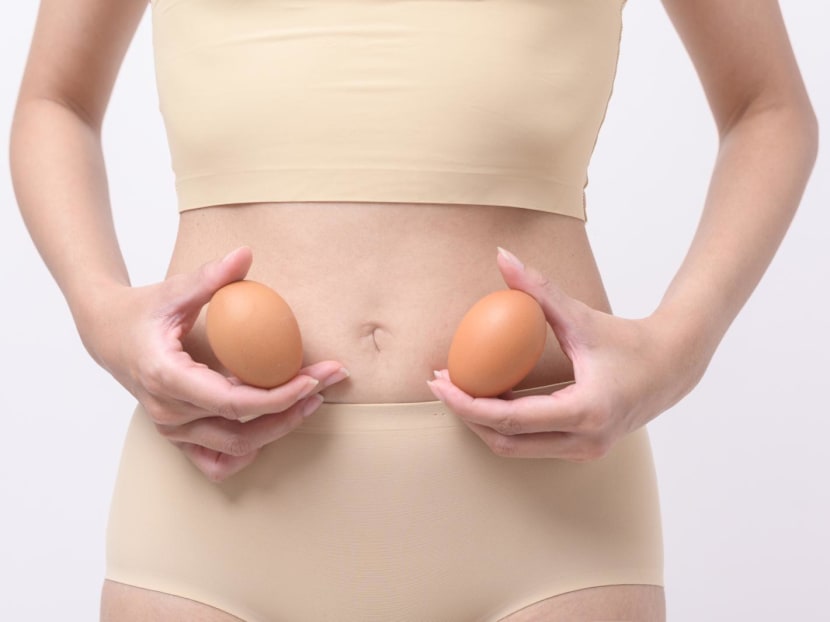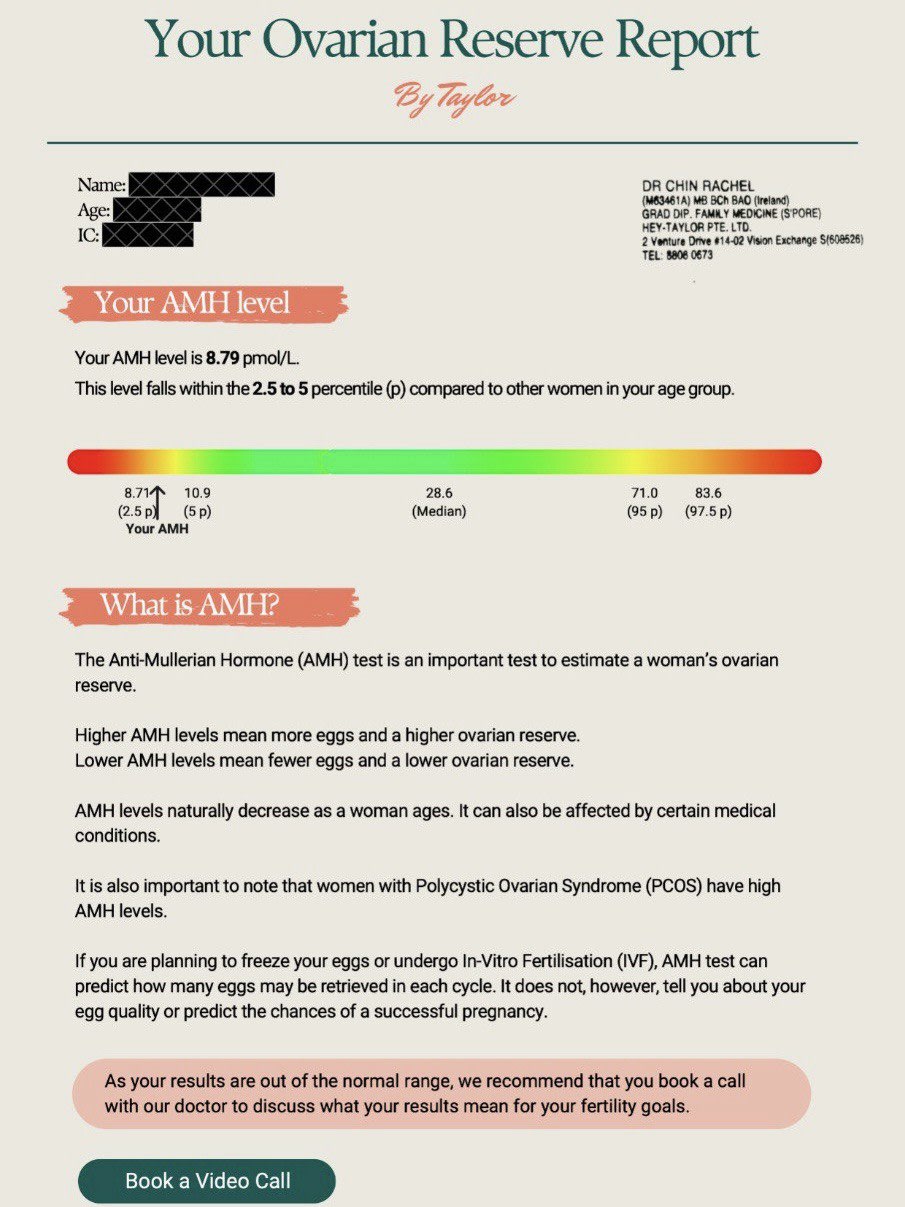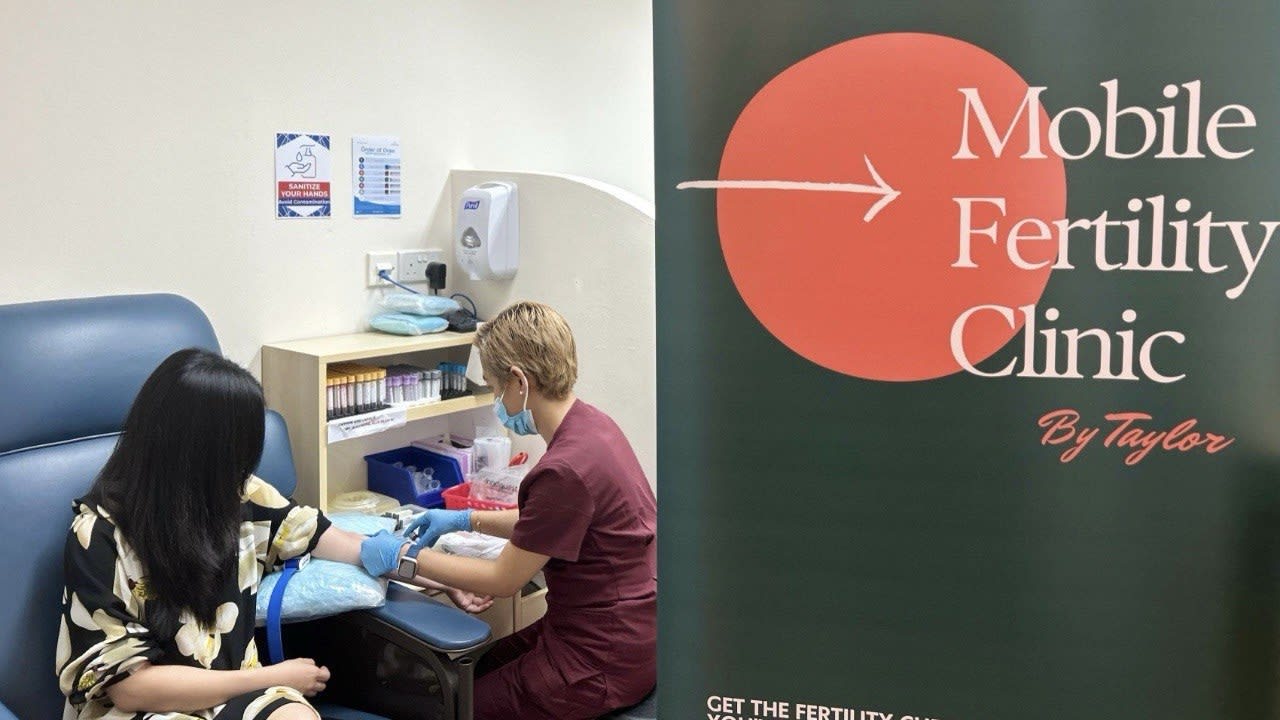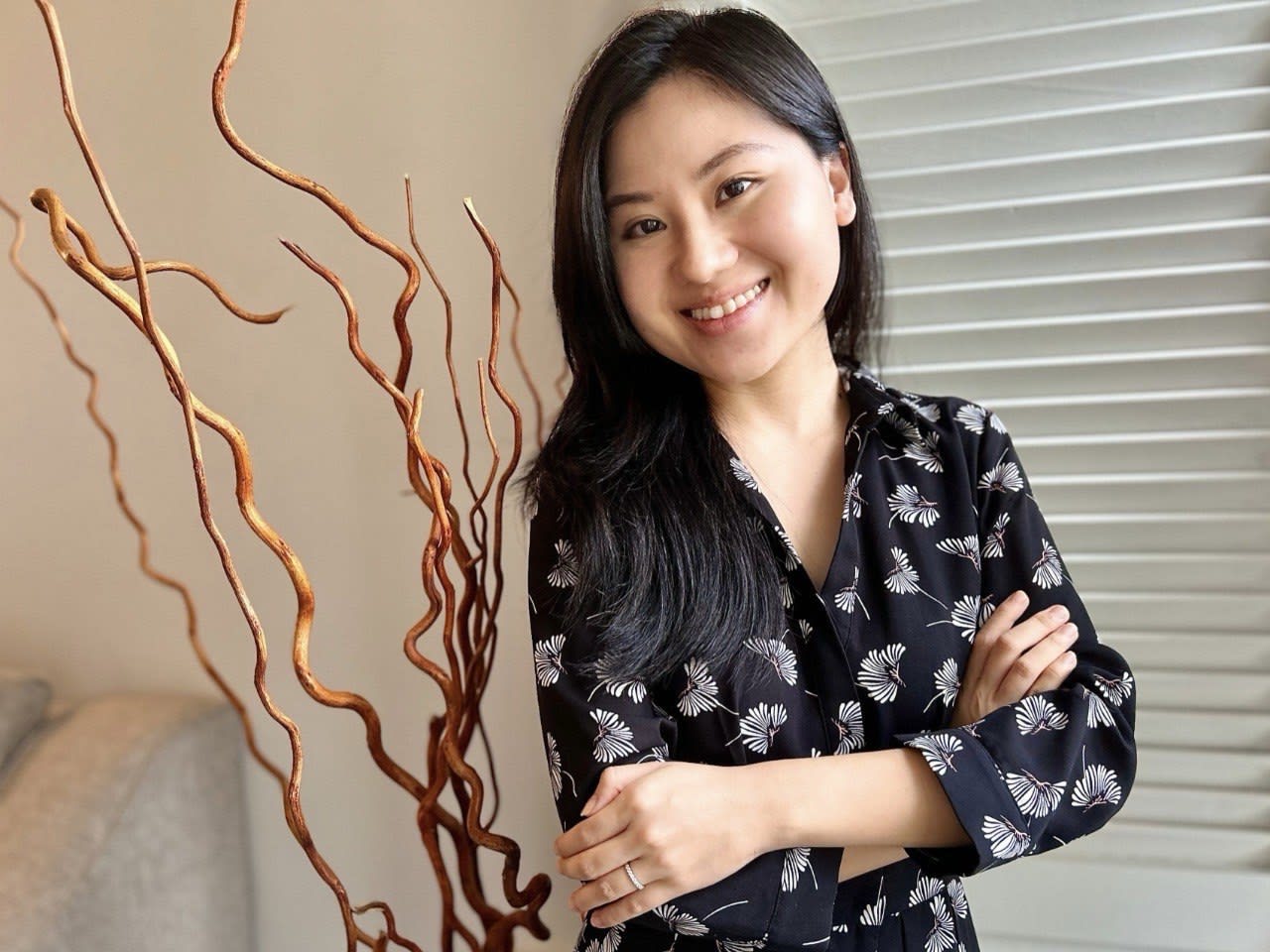Do you know your egg count? A doctor suggests women should consider fertility screening from their late 20s
For women planning to have children in the future, ovarian reserve screening can give a clearer sense of their fertility timeline so that they may plan their pregnancies better amid competing priorities and life goals, say the founders of Taylor, an independent clinical health platform in Singapore.

Fertility screening is useful for Singapore women as they tend to marry at a later age and delay having children in lieu of other life priorities. (Photo: iStock/tonefotografia)

This audio is generated by an AI tool.
What is your egg count? This is a question many women don’t think about, even if they are actively trying to get pregnant.
But the founders of Taylor – general practitioner Dr Jody Paige Goh and her business partner Eve Lee – believe this is a useful question that young women from their late twenties might ask, regardless of marital status, if they plan to have children in the future.
In the context of women marrying at a later age and facing competing priorities in life, fertility screening helps them understand their fertility health. This knowledge could help them to better plan out their lives.
An independent women’s health clinical platform launched in March, one of the key services Taylor offers is Ovarian Reserve Screening (S$98), done via a blood test and followed by a tele-consult.
“Women are born with all the eggs they will ever have, and this supply decreases in both quality and quantity with age. [This screening] can give an idea of how many eggs are left and how many fertile years may remain,” said Dr Goh.
She added that the screening does not provide information about the quality of the eggs or the chances of getting pregnant naturally, which is dependent on other factors, and that is why a discussion with a healthcare provider is recommended.

“[Ovarian Reserve Screening] is for people who… want to think about whether egg freezing is urgent for them, or who just want to know their rough fertility timeline,” said Lee, who is the platform’s CEO.
BE PROACTIVE ABOUT FERTILITY CHECKS
“We see more and more patients thinking about having children in their thirties and forties,” said Dr Goh.
“With more women and couples choosing to have children later in life, it becomes more important to be aware of potential fertility issues early on.
“Delaying family planning may reduce fertility due to the natural decline in egg quality and quantity with age, with a sharper decline beginning around 35 for women,” Dr Goh added.
This decline does not happen at the same rate for every woman, she said, which is why a personalised approach to family planning, based on information about one’s own fertility health, is useful.
The platform also offers more in-depth fertility screening to check for thyroid health and other signs of infertility, such as premature ovarian failure and polycystic ovarian syndrome (PCOS), a hormonal disorder common among women of reproductive age.

“If certain fertility issues are found, women and couples can take proactive steps, like adjusting their family building timelines or considering fertility treatments like egg freezing or IVF (in-vitro fertilisation) sooner,” said Dr Goh.
Since July 2023, elective egg freezing is legal in Singapore for women aged 21 to 37, regardless of their marital status.
“If a woman at risk of early menopause chooses to freeze her eggs now, she is likely to obtain a greater number of higher-quality eggs as compared with if she were to choose to wait a few more years,” Dr Goh added.
Related:
Fertility screening is especially important for women who are at higher risk of subfertility (delay in getting pregnant), for instance, those who have undergone ovarian surgery or chemotherapy, Dr Goh said.
These procedures may damage parts of the ovaries, harm eggs, and lower the egg count.
Fertility screening is also recommended for those with a family history of early menopause, she added. These women may be at a higher risk of the condition as well.
If certain fertility issues are found, women and couples can take proactive steps, like adjusting their family building timelines or considering fertility treatments.
Dr Goh stressed that fertility issues affect both men and women. “Men also experience a decline in fertility, with sperm quality and quantity gradually decreasing starting around age 40,” she said.
“About half of all fertility struggles are related to male factors, such as sperm quality or quantity. Understanding and addressing these issues is crucial for both partners as they navigate their fertility journey together,” she said. To help the men, Taylor offers semen analysis as part of their Couple’s Fertility Screening package.
Related:
MORE FERTILITY SUPPORT FOR WOMEN
To make fertility screening accessible to more women, Taylor will hold a mobile fertility clinic on Sep 18, at Fusionopolis, its second since the platform’s launch.
“We hope to normalise the conversations around proactive fertility care,” Lee said.
When screening reveals severe conditions or specialised needs, such patients will be referred to specialists and IVF clinics. Taylor’s network includes seven IVF clinics in Singapore, 11 in Malaysia and eight in Thailand to cater to couples with different budgets and needs, said Dr Goh.

One common challenge for women undergoing egg freezing and IVF includes self-administered injections. Lee explained that the first part of the two processes involves 10 to 12 days of daily injections of fertility hormones.
“Some people are concerned about seeing the needle going into their own body or worry that they are not doing it properly,” said Lee.
To allay patients’ concerns, Taylor offers a home-injection service where trained nurses go to the woman’s home to help her. It costs S$85 per visit.
“Having someone professional doing it for you can give you a peace of mind, and in some cases, reduce couple friction,” Lee added.
Lee, who is married and underwent egg freezing last year at the age of 31 as part of family planning, said it is a stressful experience and wants to help other couples with it.
Taylor also offers the public a free app – Hey Taylor – with a range of services, including period tracking and alerts for abnormal symptoms based on certain clinical algorithms.
For example, if you experience period pain, heavy periods, or a combination of other symptoms, the app will send you a push notification with information about relevant conditions and suggest a medical consultation.
Beyond fertility, Taylor’s aim is to support women through major life transitions, from menstrual and sexual health through pregnancy and menopause.
CNA Women is a section on CNA Lifestyle that seeks to inform, empower and inspire the modern woman. If you have women-related news, issues and ideas to share with us, email CNAWomen [at] mediacorp.com.sg (CNAWomen[at]mediacorp[dot]com[dot]sg).















